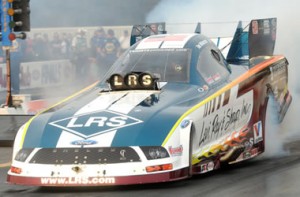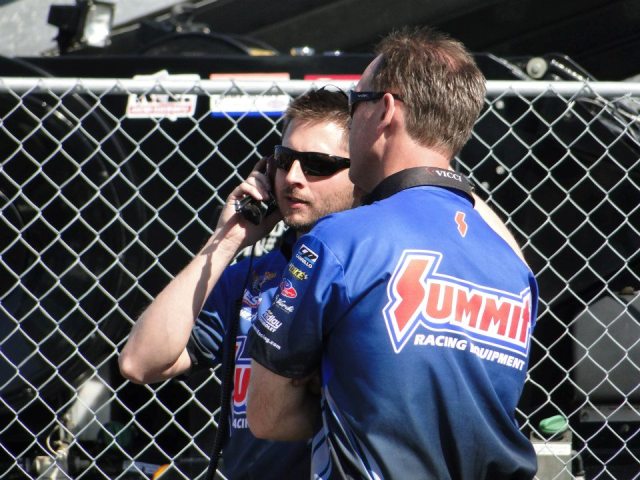How does Warren Johnson seem to squeeze every last ounce of power from his engines? What is the secret to Greg Anderson’s consistency race in and race out?
Those are good questions. And we’ve got good answers, because guys like Greg Anderson, Don Garlits, and other accomplished professional and sportsman racers have shared some of the secrets to their incredible success with us. Read and learn as they take you from pre-race preparation to the finish line over the next few weeks. This week is all about race prep.
In drag racing, the word “preparation” can cover a lot of areas—from preparing parts to prepping the vehicle to readying yourself mentally. Most successful drag racers agree that the key to preparing for a race is beginning early.
“Race preparation starts long before you arrive at the track,” said Rob Downing, Summit Racing/KB Racing crew chief. “You should keep a weekly maintenance schedule and checklist of things to do during the week leading up to each race. It’s best to take care of as much as possible maintenance-wise before you leave for the track in case you arrive late or run into other problems.”
 Once you arrive at the track, it’s important to take note of the track environment, according to NHRA Funny Car driver Tim Wilkerson.
Once you arrive at the track, it’s important to take note of the track environment, according to NHRA Funny Car driver Tim Wilkerson.
“For safety’s sake, be aware of your surroundings while at the track,” Wilkerson said. “Pay particular attention to the shutdown area, turnouts, and lighting. You need to know what to do before you find yourself in an emergency situation.”
Final preparations for a run take place at the starting line. How a racer mentally prepares himself/herself can mean the difference between going to the next round or going home.
“Your (starting line) routine may not be what anyone else does, but it’s your way of getting ready,” Wilkerson said. “In drag racing, you only have one chance on the starting line so your complete concentration is always needed.”
Here’s some more race prep advice from the pros:
“I had a physics teacher who told us to take notes on everything so our minds could be used for thinking and problem solving instead of as a library for numbers, formulas, and details. Apply this lesson to your racing program—I think you’ll discover it really works.” —Frank Hawley
“As you approach the starting line, be confident and remain calm. The starting line is the most important part of any run and you must have confidence in yourself and your abilities to set the stage for a successful run. Know that you will win and just do it!” —Mark Thomas, former IHRA Funny Car champion
“In sportsman racing, your race car and equipment may be forced to take a back seat to food, hotel, and other travel expenses if you don’t budget properly. Use a log book as a tool to help you set your budget and keep track of expenses. If you stick to your budget, you’ll never have to compromise your race equipment in order to meet other expenses. I know first-hand it’s possible to win on a tight budget with the proper planning.” —Tim Wilkerson, NHRA Funny Car Driver
Sometimes too much information can be a bad thing. Technology exists that enables us to monitor and measure so many different items that it’s easy to get lost in all the data. Figure out what the main factors are that you need to know to make your car run right and stick to them so you don’t get confused by too much information. —Frank Hawley
Next week, we’ll share some mechanical and tuning advice from the guys who get their hands dirty in the pits. While you’re waiting, check out our guide to must-have pit tools, which includes all the essential tools you may need in between rounds. You can also prep for your race season with our guide to trailering accessories and safety equipment buyer’s guide.


[…] some of the secrets to their incredible success with us. Read and learn as they take you from pre-race preparation to the finish line over the next few weeks. This second part of our series is all about vehicle […]
[…] some of the secrets to their incredible success with us. Read and learn as they take you from pre-race preparation to the finish line over the next few weeks. This third part of our series is all about driver […]